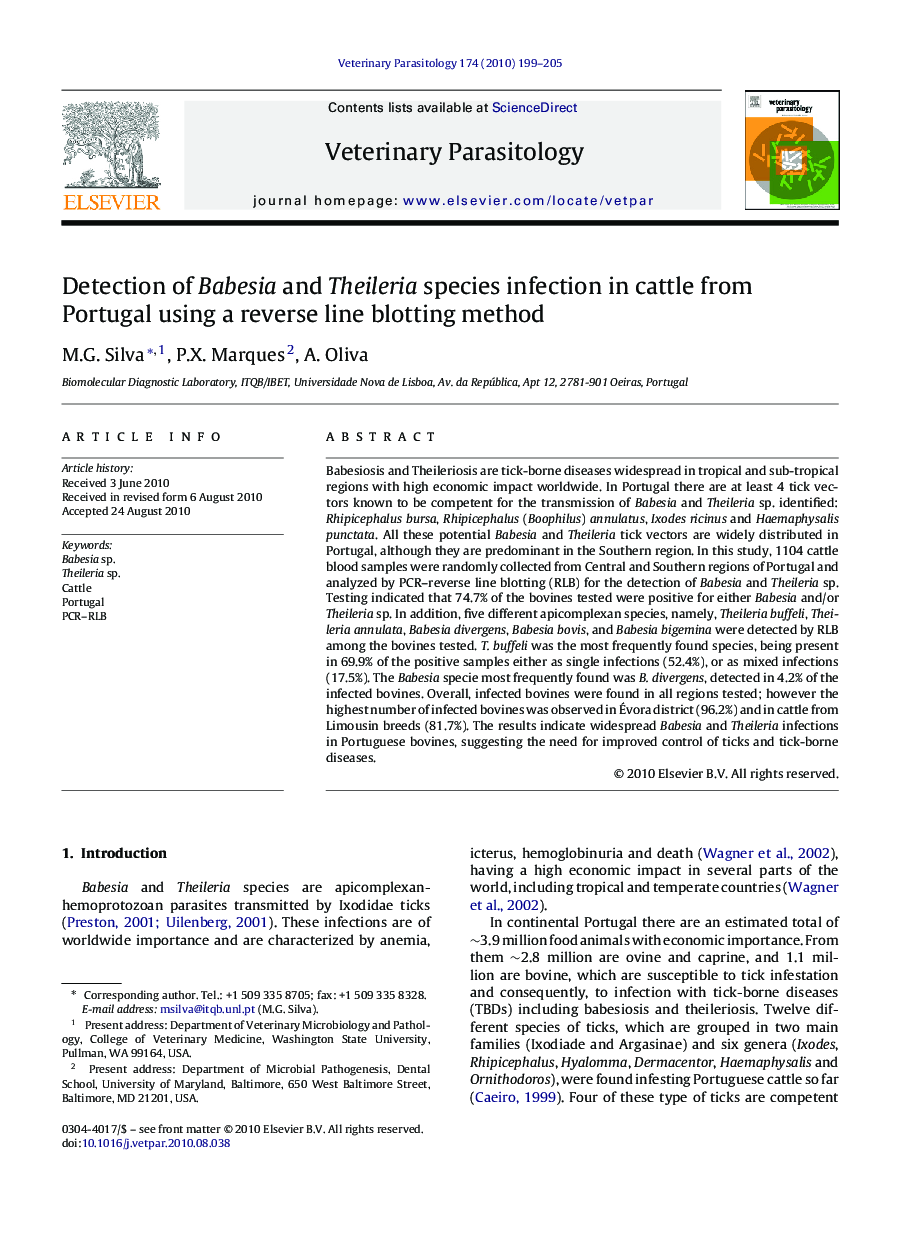| Article ID | Journal | Published Year | Pages | File Type |
|---|---|---|---|---|
| 5805961 | Veterinary Parasitology | 2010 | 7 Pages |
Babesiosis and Theileriosis are tick-borne diseases widespread in tropical and sub-tropical regions with high economic impact worldwide. In Portugal there are at least 4 tick vectors known to be competent for the transmission of Babesia and Theileria sp. identified: Rhipicephalus bursa, Rhipicephalus (Boophilus) annulatus, Ixodes ricinus and Haemaphysalis punctata. All these potential Babesia and Theileria tick vectors are widely distributed in Portugal, although they are predominant in the Southern region. In this study, 1104 cattle blood samples were randomly collected from Central and Southern regions of Portugal and analyzed by PCR-reverse line blotting (RLB) for the detection of Babesia and Theileria sp. Testing indicated that 74.7% of the bovines tested were positive for either Babesia and/or Theileria sp. In addition, five different apicomplexan species, namely, Theileria buffeli, Theileria annulata, Babesia divergens, Babesia bovis, and Babesia bigemina were detected by RLB among the bovines tested. T. buffeli was the most frequently found species, being present in 69.9% of the positive samples either as single infections (52.4%), or as mixed infections (17.5%). The Babesia specie most frequently found was B. divergens, detected in 4.2% of the infected bovines. Overall, infected bovines were found in all regions tested; however the highest number of infected bovines was observed in Ãvora district (96.2%) and in cattle from Limousin breeds (81.7%). The results indicate widespread Babesia and Theileria infections in Portuguese bovines, suggesting the need for improved control of ticks and tick-borne diseases.
